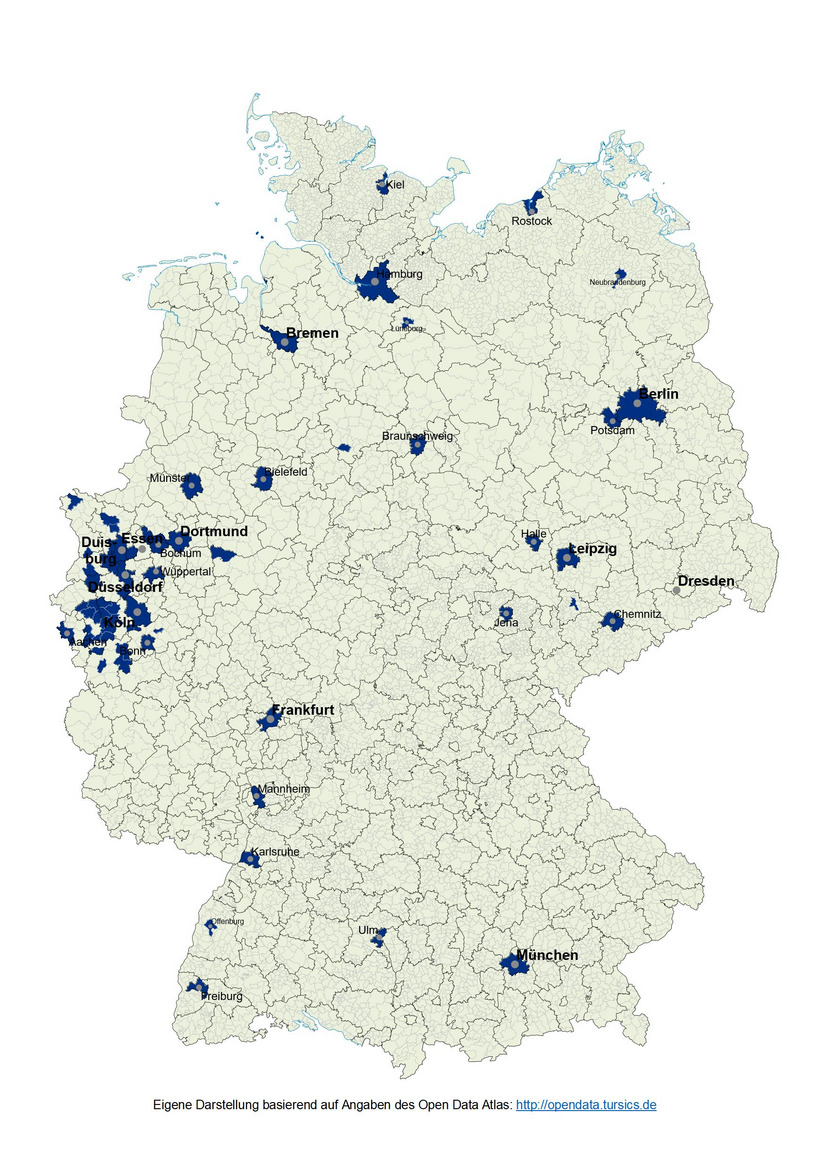There are numerous advantages when public administrators make data openly available. It increases transparency for the public and, above all, initiates a process within the administration that breaks down internal data silos and promotes exchange across departments. Open data is a key element in open government. Data is collected on behalf of a community’s citizens, for its citizens and using citizens’ money. As the concept of open government suggests, there are few compelling reasons to keep non-personal data hidden away.
Open data can also generate added value in economic terms. At the local level, however, such benefits are often hindered by the data’s limited availability, meaning there is too little data for companies to develop a business model. Social added value, on the other hand, is already being realized in many places thanks to open data. The OK Labs organized by the Open Knowledge Foundation, for example, are generating new applications benefitting the public. This potential could be further increased if open data were available nationwide.






